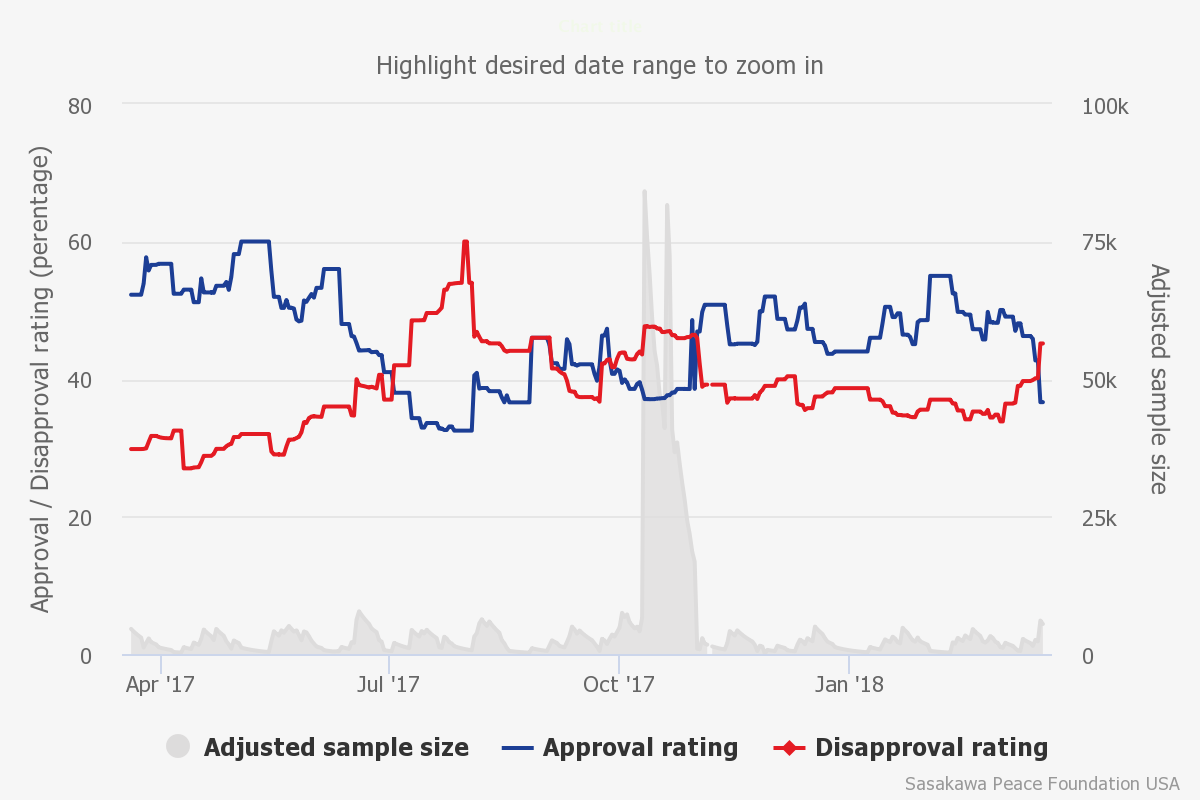Japan: Political noise
Until the Moritomo Gakuen scandal is laid to rest, Prime Minister Abe will struggle to pass any fresh legislation, including on the constitution
PM Abe reeling in renewed scandal allegations
The popularity of the Japanese Prime Minister, Shinzo Abe (pictured),. has taken a further pounding after new allegations surrounding the controversial sale of state land to Osaka-based school operator, Moritomo Gakuen, re-surfaced this month.
The background of this case, which has been dogging Abe for some time, stems from public land sales in June 2016 at what appear to be an unusually low price, to Moritomo Gakuen, a Nationalist educating establishment with links to PM Abe’s wife, Akie. Last February, Akie Abe stepped down as honorary governor of the school amidst rising public criticism.
Having allegedly offered to step down as PM if his wife were mentioned in connection with this sale, Ministry of Finance documents surrounding this sale were reputedly destroyed. The re-ignition of this scandal has come from the revelation that other documents related to this transaction may have been doctored by the Ministry of Finance to remove or obscure names. PM Abe has stated in the past that he would resign as PM if his wife were named in the documents.
None of this is helping PM Abe’s desire to amend Japan’s pacifist constitution, with cabinet and personal approval ratings dipping, though still remaining at about 40-42%. Abe’s personal approval ratings are lower.
PM Abe's cabinet approval ratings

Japan and defence
Japan already has a very large (self) defence force, spending only a little less than most NATO countries on defence. Japan’s pacifist constitution is something that has stuck in the craw of many nationalist Japanese politicians. But when it comes to the National Self Defence Force, the concept of “armament” seems more of a syntactical distinction than a real goal.
Japan currently spends a little over 1% of GDP on defence, with military spending accounting for about 6.5% of the national budget. This is down
In terms of concrete forces, Japan has 312,000 Military personnel, of whom a little under 250,000 are active, and the remainder reservist. The infantry is supported by just fewer than 3000 armoured fighting vehicles, of which 700 are combat tanks. And its air force has almost 1600 aircraft, of which around 400 are attack planes and helicopters. Of its 131 naval assets, 4 are aircraft carriers. Destroyers,
Abe’s future as PM is at stake, though he will probably hang on
Until the Moritomo Gakuen scandal is laid to rest, Abe, who faces an election as President of the LDP after his current 3-year term comes to an end in September this year, will struggle to pass any fresh legislation, including on the constitution. And although opposition politics in Japan still look chaotic, this helps the LDP to retain power, not necessarily Abe. Even if Abe survives this current inquest into his and his wife’s role in the Moritomo scandal, a national referendum would be required to make a constitutional change. It currently looks quite unlikely that any such referendum would gain sufficient support to become national law.
This article is taken from our Monthly Economic Review. which you can find here.
Download
Download articleThis publication has been prepared by ING solely for information purposes irrespective of a particular user's means, financial situation or investment objectives. The information does not constitute investment recommendation, and nor is it investment, legal or tax advice or an offer or solicitation to purchase or sell any financial instrument. Read more
